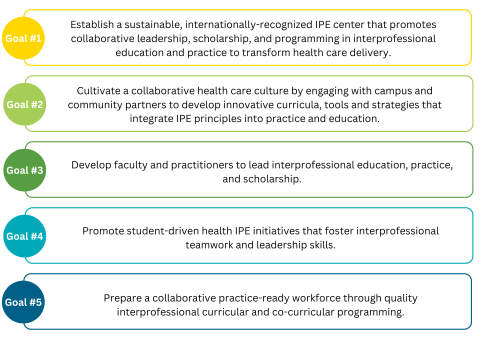HIPE day group picture
About the Center
The HIPE Center brings together students, faculty, and practitioners across the health care continuum to strengthen person-centered care and population health through collaborative practice.
IPE: Transforming Health Care Across the Continuum
The HIPE Center leads the direction and coordination of IPE at The University of Texas at Austin through collaboration with our seven partner schools.
IPE is informed by national frameworks including health care professions’ accreditation bodies and the national interprofessional education collaborative (IPEC) competencies.
Our work reflects the passion and commitment to IPE by our students, faculty, practitioners, and administrative leaders and staff.

Goals And Impact
Our Partner Programs
- Dell Medical School
- School of Nursing
- School of Social Work
- College of Pharmacy
- College of Education, Department of Kinesiology and Health Education and Department of Educational Psychology
- College of Natural Sciences, Department of Nutritional Sciences
- Moody College of Communication, Department of Speech, Language, and Hearing Sciences
Our Structure and People




